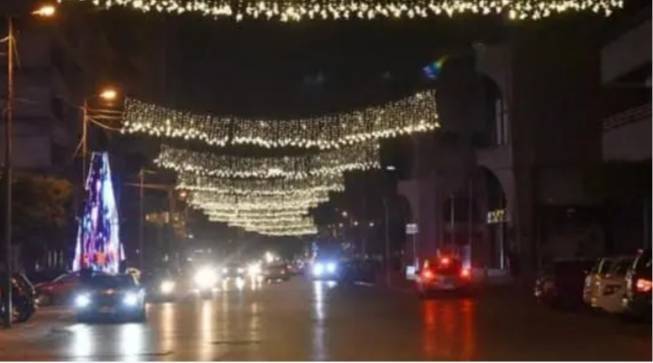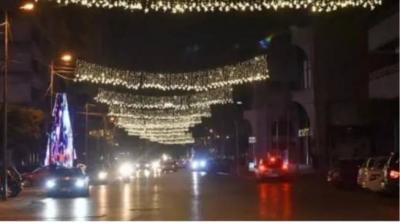The holidays this year have arrived carrying hope and joy amid the daily difficulties faced by the Lebanese citizen. With the beginning of December, stores filled with customers, and Lebanese markets witnessed a hustle and bustle that had been missing in recent years. This year's scene differed from previous years, as Lebanese people insisted on "experiencing the holiday spirit" and challenging the tough circumstances they are going through. However, it seems that the bustling markets during the holidays do not necessarily indicate real economic recovery.
According to Beirut Traders Association member Bassem Bouaab, this year's commercial activity did not bring about much change. In a conversation with "Nidaa Al-Watan," he stated, "Of course, there was some improvement with the increased movement of expatriates during this period, especially in the tourism sector, where restaurants and hotels were fully booked, but regarding purchasing activity, it was not strong—acceptable, but not excellent." He added, "In recent years, we have noticed a new phenomenon in market activity, which is the prosperity in the commercial sector after the holidays, specifically during January and February, when citizens frequent the markets, resulting in a boost in purchasing activity." He pointed out that "during the holiday period, the tourism sector is directly affected, while the commercial sector feels the impact in the period following the holidays."
Bouaab observed that "the overall situation is good compared to previous years, specifically 2020 and 2021, but the percentage is still low, as we remain below the levels of 2019 and earlier, with current activity at 50 to 60% of past years' levels, while the percentage was 30 to 40% during 2020 and 2021, and it is expected to improve gradually."
For his part, the head of the Ashrafieh Traders Committee, Michel Metni, confirmed that this year was good due to several factors. He continued in a conversation with our site: "Many factors contributed to the increase in commercial activity this year, first in terms of health, with the lifting of COVID-19 restrictions. This year, people were able to greet and visit each other without the constraints previously imposed in past years, along with the lockdowns in the country."
Regarding the overall economic and particularly banking aspects, Metni touched upon the issue of bank interest rates, considering them to have "suffocated the economy." He noted that with their absence or the liberation of citizens and markets from banks, relying on the concept of "cash economy," economic activity has moved, in addition to many citizens investing again and opening stores and restaurants.
Metni further added: "The expatriates played a key role in revitalizing the economy, whether through the increase in arrivals to Lebanon during the holiday season or through sending money to their families." He also addressed the dollar issue, stating, "Many freelancers have relied on being paid in dollars from day one, which has contributed to increasing citizens' purchasing power amid prices and exchange rates, while only state-related and bank-related businesses rely on the national currency."
In conclusion, Metni indicated that "the return to a more normal situation would be through restoring trust by separating the economy from politics and creating a group of specialists to closely monitor economic matters to take appropriate and rapid measures regarding market activity." Although the commercial sector witnessed activity this year, traders still hope for its return to its former glory and for it to regain prominence in all seasons, not just during the holidays.




